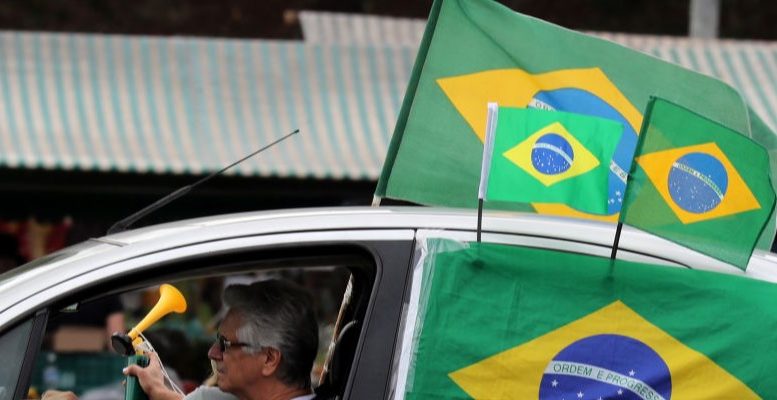On Sunday 7 October, all Brazilians between the ages of 18 and 70 are being called to the polls to elect their next President (voting is a legal obligation in Brazil). After the first round a likely necessary run-off will be held on 28 October. Alongside the President and Vice President of the nation (who will both take office on 1 January 2019), Brazilians will also elect the Governors and State Assembly members for 27 states. The National Congress will reshuffle all of its 513 seats in the Chamber of Deputies and two-thirds of the Federal Senate (54 out of 81 seats). The members will be inaugurated on 1 February 2019. “This is an important election, not just because a lot of political posts will be voted on, but because the future administration will have the responsibility to tackle Brazil’s growing fiscal imbalances, and this will require politically challenging structural reforms”, analysts at AXA IM comment.
The 2018 elections are taking place in a particularly challenging environment. The economy is just coming out of its deepest recession on record where GDP fell by a cumulative 9.4% from its peak in the third quarter in 2013 to its trough in during the first quarter of 2017. According to the firm:
This has left profound scars on the economy, such as a high 12.3% unemployment rate (as of July 2018). This situation has particularly impacted the younger population – 29% of those aged 15 to 24 year-olds are unemployed and it has also helped drive an increase in the informal economy.
On the political front, the country faced a multitude of tumultuous events recently. There was the knife attack on presidential candidate Jair Bolsonaro in the midst of a campaign rally, ex-President Lula da Silva’s imprisonment, the impeachment of President Dilma Rousseff in 2016 while numerous politicians and parties were implicated in the Lava Jato (Car Wash) corruption scandal.Unsurprisingly, Brazilians’ public trust in their own politicians ranks among worst in the world (137 out of 138 in 2017) according to the Global Competitiveness Report, sourced by the World Economic Forum. All this caused the election race to be fragmented, with low visibility and a significant rise of political extremes.
In opinion of experts at AXA IM ,the elections in Brazil, for Congressmen and for the President alike, are “a beauty contest in which people vote for a person, not for a party.” The add:
Yet, there is no room for independent candidates, as in order to run for office, one must belong to a political party. There are 35 political parties currently active in Brazil, 25 of which have representatives in the Lower House of the Congress. No single party has ever come close to a commanding majority in the Congress.
The fragmented party system means that there are no less than 13 candidates running for President, but only five of them managed to gather more than 5% of voting intentions in the various national polls– with a strong polarisation around two candidates – populist right wing candidate Jair Bolsonaro and Fernando Haddad, Lula’s left wing replacement candidate, who happen to both have the highest approval and among the highest rejection rates. Second round polls simulations have therefore not been able to give a clear indication of who may win and markets may need to adjust quickly when the final results arrive.
The ability to reform Brazil will depend upon the political structure of the future Congress. So far, Geraldo Alckmin, who was successful in consolidating a strong centre-right coalition, accounting for almost half of the Congress seats, has not gained any traction in voting intentions, according to the polls. Meanwhile, Bolsonaro and Haddad, who are leading the polls, have very limited Congress support at present – each can claim 16% of the seats in the Lower House, and almost no support in the Senate.
The willingness to implement reforms was expressed by most candidates but there are significant differences in the plans they have put forward. It seems more likely that Alckmin, Bolsonaro and Marina Silva will seek to push through reforms but Congress would need to shift dramatically in order for the latter two to obtain solid support among members. The other two candidates, Ciro Gomes and Haddad would also require meaningful changes in the Congress structure if they were to obtain a strong mandate – this would likely favour social spending over structural reforms.





